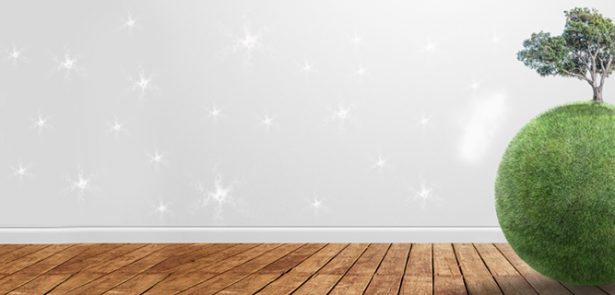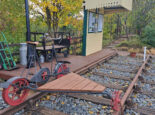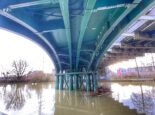Have yourself a RECYCLING Christmas!

Recycling as much household waste as we can means less waste sent for disposal, fewer processing costs and minimal environmental impact. As Christmas approaches with its associated increase in waste, Peterborough City Council’s Recycling Contracts Officer Amy Nebel offers some tips on reducing waste while increasing the amount we recycle
Over recent years Peterborough’s residents have made incredible strides on the amount of waste they recycle. The now familiar green wheelie bins offer a convenient, no-fuss way to recycle, making the whole process considerably easier. Yet despite these improvements, a notunsubstantial six to seven per cent of what’s collected from the city’s green bins shouldn’t be there. This equates to anywhere from 80 to 150 tonnes of rogue waste every month, costing the council additional money to process and causing headaches for workers at the waste recycling facility in Waterbeach.
‘That’s a lot of stuff we’re collecting that shouldn’t be in the green bins,’ says the council’s Recycling Contracts Officer Amy Nebel. ‘Much of this rogue waste could be recycled by other means, while the rest should be in the black bin.’ The waste recycling facility is only capable of recycling items that it is set up to process. Waste on top of this must then be diverted to landfill, unnecessarily wasting valuable time and resources.
These bin-dwellers really are “rubbish”!
Three items crop up time and again: nappies, food waste and textiles. Each of these items can be put to better use elsewhere and, disposed of correctly, will either save council taxpayers’ money or generate valuable income for charities.
Nappies
Nappies should be placed into your black bin. All of the non-recyclable waste collected from the black bins is whisked off to the Energy Recovery Facility in Fengate, where it is burned to generate electricity, avoiding the problems of pollution and climate changing gases associated with landfill. Parents can go further by considering reusable cloth nappies. Cloth nappies have a number of advantages over disposables. They contain fewer chemicals and will save money compared to using disposable’s over two to three years, even when taking into account the costs of washing them. Used nappies are heavy, so it stands to reason they make up a high proportion of waste, costing the council around £200,000 a year to deal with! The Peterborough Nappy Library can help parents keen to find out more about cloth nappies and offers nappies for hire.
Food waste
Food waste can of course be recycled in your Hungry Harry – the food waste caddy that is collected weekly on your normal bin collection day. All of this waste food is then used to generate electricity with the only by-product a nutrient-rich fertiliser that’s then spread on fields to feed new crops. Nothing is in fact wasted! Despite this, growing and rearing our food requires a lot of energy, while generating a lot of the carbon dioxide and methane responsible for climate change. Everything we can do to reduce the amount of food we waste is worth pursuing. Christmas, in particular, is a time of considerable waste. ‘The secret, as at any time of year, lies in careful meal planning so you only buy what you need, while reinventing leftovers into tasty new dishes,’ says Amy. ‘The Love Food Hate Waste website is a goldmine of recipe ideas and tips – including for those notorious turkey leftovers!’
Textiles
The third member of our green bin gatecrashers is textiles. ‘Textiles are a special case because while they can be recycled, they can’t be placed into your green bin,’ explains Amy. ‘This is because textiles placed into the green bin can then be contaminated with glass and other impurities, which become embedded into the fabric, rendering it useless. This is a shame, as textiles can be put to good use elsewhere.’ ‘There are many charity shops that will accept your old clothes and fabrics. Many charities also offer regular doorstep collections, or people can arrange for a free collection by the council. There are also a number of textile banks around the city, so there really are plenty of ways to recycle your unwanted textiles.’ Even torn and end-of-life clothing and textiles are wanted by charities, who can sell them on to rag merchants to generate an additional income.
‘Surprisingly even rags can be reprocessed for other uses, for example as absorbents for the motor trade. There really is a value in everything.’ Amy is confident that the percentage of rogue items finding their way into green bins will decline as people become more aware of the reasons behind the different methods for our waste disposal and recycling. ‘If people do the right thing we can increase recycling rates further, which will ultimately save the council and the city’s taxpayers money. Of course, Peterborough’s residents are already doing so much already, and we want to thank you for your part in the progress that’s been made so far.’
10 top tips for Christmas waste
1. Buy drinks in large bottles rather than lots of smaller ones.
2. Buy your Christmas fruits and vegetables loose rather than pre-packed. This helps you to buy only what you need while reducing the amount of packaging waste created.
3. Make the most of any leftovers. Try out some of the tempting recipes at www. lovefoodhatewaste.com
4. Recycle all of your waste food in your Hungry Harry bin.
5. Use your old Christmas cards as present labels.
6. Say no to unwanted shopping bags and reuse the ones you already have.
7. Buy recycled and recyclable wrapping paper and Christmas cards.
8. Consider sending an electronic Christmas card instead of posting one.
9. Buy wisely, opting for gifts that don’t have too much packaging.
10. If you buy a real tree make sure you either replant it or have it shredded once Christmas is over. You can put them out for collection with your brown bin or take them to be composted at the Household Recycling Centre.
Festive excess
Like our waistlines, the volume of household waste produced expands over the Christmas period. Presents, food and parties all contribute to this seasonal surplus. ‘Part of this increase can be traced to the rise of internet shopping, with its associated boxes and packaging. Retailers such as Amazon have done a lot to improve the recyclability of their packaging. Amazon’s approach has been to ensure that all of their packaging can now be recycled, which means replacing, for example, bubble wrap with paper packaging. But while all of it can be recycled, it does mean there’s a peak of material at this time of year.
‘People may not be get all of it in their green bin but we can accept side waste, so if doesn’t fit, just leave any excess recycling next to your green bin in clear sacks or loose for large items of cardboard. And of course there is the Household Recycling Centre for anything bulkier.’ Wrapping paper is something we use a lot of at this time of year. Gift givers are being advised to be savvy shoppers and opt for wrapping paper that can obviously be recycled. ‘It’s a question of avoiding that really shiny, glossy wrapping paper, or paper that clearly has additional ingredients like glitter,’ explains Amy. ‘The materials that go into making some wrapping paper mean that it can’t be accepted for recycling.
Fly-tipping
Fly-tipping is an eyesore and costly to put right. Sadly Peterborough still continues to see fly-tipping in and around the city. Residents are being urged to only use licensed waste carriers who must advise where your waste is to be legally disposed of. Watch out for people posing as legitimate waste carriers who may be illegally disposing of your household items. Under the Household Waste Duty of Care regulations, householders are required to take reasonable measures to ensure that household waste produced at their property is passed on to licensed persons and disposed of legally at an authorised site. Residents using an unlicensed person could be prosecuted and fined up to £5,000 if the flytipped waste can be traced back to them.
Wrapping up
Wrapping is often dyed, laminated or contains non-paper additives such as gold and silver-coloured shapes, glitter or plastics.’ A clever – and often cheaper – way to wrap presents is to use brown paper accessorised with reusable ribbons. Another festive favourite is the Christmas tree. You can’t beat a real tree. If it can’t be replanted then brown bin subscribers can place their old tree into their brown bin. In a first, the council is also offering those who haven’t signed up for the brown bin service the opportunity to recycle their tree by having it collected from home. ‘This will make it a lot easier for people to dispose of their trees.’ For those who do not have a brown bin simply place yoor real tree out with the green recycling bin between the 17th and 27th January 2017.
What can I put in my green recycling bin?
Yes please
● Paper, including newspapers, magazines, envelopes etc. ● Cardboard ● Glass bottles and Jars ● Food and drink cans ● Foil, aluminium trays ● Aerosols ● Plastic packaging, including plastic bottles, yogurt pots, margarine tubs, food trays ● Plastic bags, including bread bags, plastic film. ● Cartons (Tetrapak etc.)
No thanks
● Nappies: Put these into your black bin ● Food waste: Feed your Hungry Harry instead! ● Textiles: Donate to charity shops, doorstep bag collections (including council collections) and textile banks ● Small electricals: Council small WEEE collections, or some charity shops if in working order ● Wood: Take to your household recycling centre ● Polystyrene ● Black bags ● Shredded paper ● Paint tins ● Pyrex ● Light bulbs Leaflets reminding you what can and can’t be recycled in your green bin are being delivered to every household this November. Take a moment to read it and recycle more!
Future plans
Visitors will recognise that a trip to the local Household Recycling Centre can sometimes be a strain, particular during peak times of the year such as immediately after Christmas. The council has therefore announced plans to open a new centre next to the Energy Recovery Centre in Fengate. ‘The household waste recycling centre in Dogsthorpe has been fantastic, but it’s too small to cope with today’s volume of visitors and is no longer fit for purpose,’ says Amy. ‘Problems such as queuing at peak times is naturally frustrating. That’s why we are moving to a larger, undercover site at Fengate. This new facility will be bigger, better, shinier!’ The new recycling centre is due to open by early 2018, offering the city’s residents more reason to recycle and dispose of waste responsibly.
Further information
Peterborough Nappy Library: www.peterboroughnappylibrary.co.uk
Love Food Hate Waste recipes: www.lovefoodhatewaste.com
Report flytipping: please call Peterborough Direct on 01733 747474
More on waste and recycling: www.peterborough.gov.uk/residents/rubbish-and-recycling
Image: www.freepik.com/free-photo/small-planet-with-a-tree-on-wood















